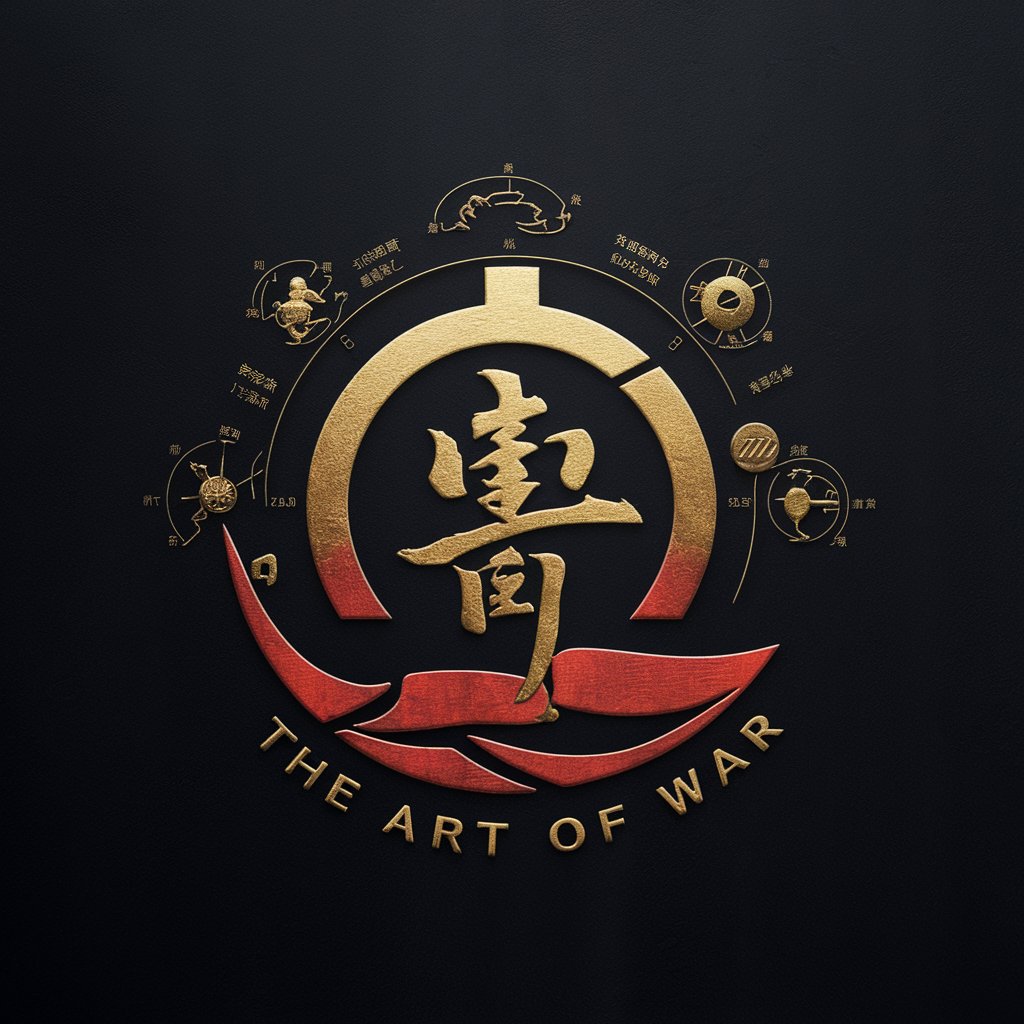孙子兵法 - Ancient Strategy Insights

Welcome to the wisdom of Sun Tzu, where strategy meets insight.
Harness ancient wisdom for modern challenges.
What strategies from 'The Art of War' can be applied to modern business competition?
How can Sun Tzu's teachings help in personal development and decision-making?
Discuss the importance of understanding the enemy in both warfare and business as per Sun Tzu.
What lessons can leaders learn from Sun Tzu's approach to resource management and efficiency?
Get Embed Code
Introduction to 孙子兵法
孙子兵法 (The Art of War by Sun Tzu) is the most ancient and significant work on military strategy from China, dating back to the late Spring and Autumn Period (approximately 5th century BC). It embodies the essence of Chinese military thinking and has exerted a profound influence not only on Chinese but also on global military thought and beyond, including areas of leadership, strategy, and competition. The text outlines principles for warfare, emphasizing strategy, tactics, and foresight. Examples include the famous episodes of Sun Tzu training the concubines to illustrate the importance of discipline and the story of weakening the enemy without fighting. Powered by ChatGPT-4o。

Main Functions of 孙子兵法
Strategic Planning
Example
The text discusses the importance of comprehensive planning and analysis of various factors like the enemy's strength, terrain, and timing before engaging in battle.
Scenario
Business leaders use these principles for market analysis and strategic decision-making.
Deception and Intelligence
Example
孙子兵法 teaches the art of deception and the importance of espionage in understanding the enemy's intentions.
Scenario
In corporate strategy, companies use competitive intelligence to gain an advantage over business rivals.
Leadership and Management
Example
It highlights the traits of effective leadership and the significance of discipline within teams.
Scenario
Managers apply these teachings to improve team cohesion and leadership effectiveness.
Ideal Users of 孙子兵法 Services
Military Strategists
Individuals in defense and strategic planning can apply the ancient wisdom of 孙子兵法 to modern warfare and defense policy formulation.
Business Leaders
Executives and entrepreneurs can draw on Sun Tzu's strategies for competitive advantage, negotiation, and leadership.
Educators and Scholars
Academics researching strategy, leadership, and philosophy find valuable insights in 孙子兵法 for teaching and scholarly exploration.

Utilizing 孙子兵法
1
Begin a trial at yeschat.ai without needing to sign up or have ChatGPT Plus.
2
Familiarize yourself with the key concepts and strategies outlined in 孙子兵法, focusing on the areas of strategic planning, leadership, and conflict resolution.
3
Apply 孙子兵法's principles to analyze real-world scenarios, identifying the 'Terrain', 'Methods', and 'Opportunities' to form strategic plans.
4
Reflect on the outcomes of your decisions and strategies, comparing them with 孙子兵法's teachings to understand the effectiveness and areas for improvement.
5
Regularly revisit 孙子兵法's concepts, adapting and evolving your strategies as you gain more experience and face new challenges.
Try other advanced and practical GPTs
Dungeons & Dragons Story Teller
Craft epic adventures with AI-powered storytelling.
L E G O - Brick Detective - Analysis
Unraveling the World of LEGO, Brick by Brick

Planner Pro
Design, Plan, Create: AI-Powered Digital Planning

Caricature Generator
Turn Photos into Caricatures with AI

ContractReviewer
AI-Powered Contract Insights

Email PT
Empowering your emails with AI

Leadership AI Chatbot
Empowering Leaders with AI

Asesor de autoevaluación TP (CHILE)
Empowering technical institutes with AI-driven accreditation support

RPG World and Story Architect
Forge Epic Tales with AI-Powered Imagination

Jigsaw Puzzle Designer
Craft Your Puzzle, Powered by AI

Unknown Number
Engage with the mystery, power your words.

Collector's Corner
Unlock the Secrets of Your Sports Card Collection

Q&A on 孙子兵法
What is the core philosophy of 孙子兵法?
孙子兵法 emphasizes strategic flexibility, understanding the importance of adapting to changing circumstances, and the value of indirect approaches to overcome challenges.
How can 孙子兵法's principles be applied in business?
In business, 孙子兵法's strategies can be used for competitive analysis, market entry, negotiation tactics, and leadership development, focusing on leveraging strengths and exploiting competitors' weaknesses.
What does 孙子兵法 say about leadership?
孙子兵法 underscores the importance of wise and decisive leadership, advocating for leaders to be adaptable, insightful, and capable of inspiring unity and loyalty among their followers.
Can 孙子兵法's teachings be applied to personal development?
Yes, its principles on self-discipline, awareness, and continuous learning can be applied to personal growth, helping individuals navigate life's challenges more effectively.
How does 孙子兵法 address the concept of 'knowing the enemy'?
孙子兵法 advocates for comprehensive understanding of one's adversaries, suggesting that success comes from knowing both the enemy's and one's own capabilities and limitations.
